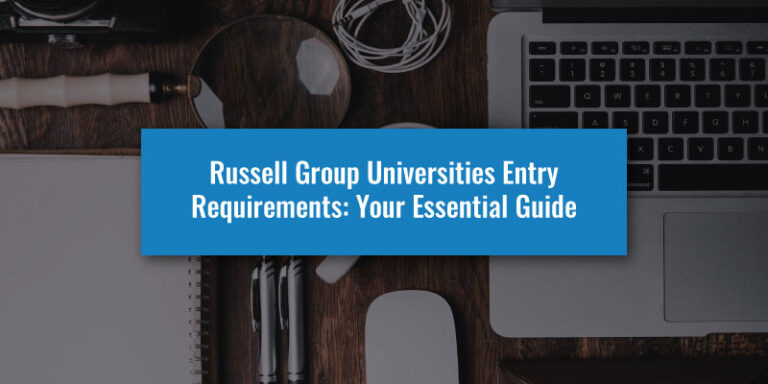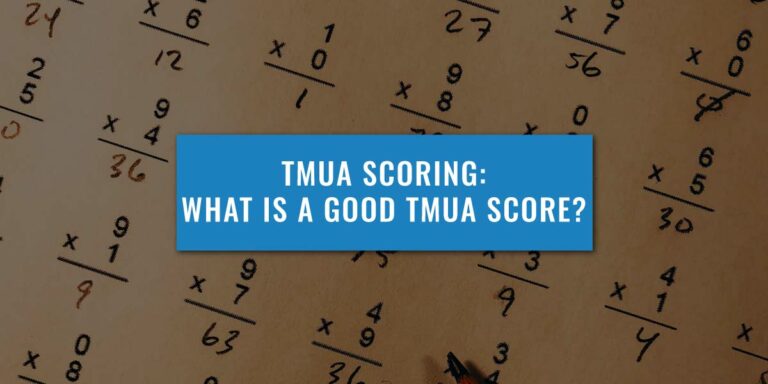The London School of Economics (LSE) is one of the top universities in London, offering a diverse range of courses in law, politics, mathematics and more. However, considering the name, its teaching of Economics is one of its biggest strengths and more popular courses.
LSE is a Russell Group and G5 University and is considered on the same level as Oxford and Cambridge and, in some cases, actually surpasses them. LSE is consistently one of the highest ranked universities for Economics and generally has some of the most competitive admissions rates in the UK due to its small class sizes.
In order to stand a chance of earning an offer at LSE, you’ll need to ensure you understand the entry requirements for your chosen Economics course, as there is more to the process than a standard university application. This guide will explain the whole process so that you know what you’re getting into!
LSE Economics Degrees
Although the university is known for Economics, the university is split into multiple departments, only one of which teaches economics. The Department of Economics teaches two primary undergraduate courses:
These are the degrees taught by the Economics Department, but there are also multiple joint degrees that combine Economics with other subjects. These include:
As well as this, there is also BSc Economic History, but this is taught by a different department and is generally more focussed on History.
All of these courses last three-years and cost the standard tuition fee of £9,250 per year for UK students. International students will need to pay between £27,500 and £29,200 per year to study any of these courses.
Get your place to study Economics at LSE with support from UniAdmissions.
For over a decade, we’ve been getting students into the top medical schools in the UK, including LSE, Oxford, Cambridge and more. Through our carefully crafted suite of resources and our vast team of tutors, we will triple your chances of getting your offer.
Discover our Economics Full-Blue Programme and click the button below to enrol and triple your chances of success.
LSE Economics Entry Requirements
Now, let’s cover all of the major entry requirements for applicants of Economics at LSE. We’ll primarily be focusing on the standard Economics degree for undergraduates, although we will highlight any major differences in the admissions process for the other varients of the degree. To learn more about the requirements for your specific course, be sure to review the course page on LSE’s website.
GCSEs
However, the standard Economics degree takes things further, as applicants are expected to have several Grades 7+, although an exact amount is not stated. Your full GCSE grade profile is considered, so the more high grades you have, the higher your chances of success are.
A-Levels
A-Levels are generally more important to your application that GCSEs, despite nthe fact that most applicants won’t have achieved their final grades yet. The same is true at LSE, which holds fairly high A-Level requirements for applicants to meet in order to be admitted.
LSE Economics A-Levels Requirement
A*AA, with A* in Mathematics
Mathematics is generally the most crucial A-Level and Economics applicant will need to complete, evidenced by the fact that any successful LSE applicant will need to achieve an A* to be admitted.
This entry requirement can sometimes be lowered and may sometimes require additional subjects. As an example, Economics and Economic History only requires AAA, but also requires a grade in Economics or History alongside and A in Mathematics.
Contextual offers can be provided for those with extenuating circumstances. These offers lower the grade requirement to A*AB for Economics, with applicants still requiring an A* in Mathematics. The requirement can also be lowered to AAB for other subjects.
Alternative Qualifications
Other than A-Levels, there are many other qualifications that can be taken, although not every one is accepted by LSE.
Scottish applicants who are taking Advanced Highers will always be expected to achieve A1AA, with Mathematics being required. UK qualifications such as BTECs are also accepted in some circumstances, though UCAS Tariff points are not considered in the admissions process.
International applicants have a limited range of qualification options, with the International Baccalaureate (IB) being the most common. The IB is a widely recognised qualification offered in numerous countries worldwide.
For Economics, applicants need to achieve a minimum grade of 38 points, with 766 at higher level. Mathematics is also required with a score of 7.
As with A-Levels, contextual offers will lower the required grade to 37 with 765 at higher level. Mathematics still requires a 7.
Personal Statement
As part of your UCAS Application, you will need to write and submit a Personal Statement, which is a standard requirement for any university application in the UK. The statement, submitted digitally, is divided into three sections and has a character limit of 4,000.
Your Personal Statement serves as an opportunity to provide context for your application, essentially acting as a brief pitch about yourself as a potential student. It is based on three questions set by UCAS, allowing you to explain why you want to study Economics, share your experiences with the subject both in and outside of school, and highlight what you can bring to the university if accepted.
By clearly and concisely addressing these factors in the relevant sections of your statement, you’ll improve your chances of being invited to interviews (provided you do well in the TMUA). Find more tips for your Personal Statement in our Ultimate Guide.
TMUA
LSE is one of the various universities in the UK to utilise the Test of Mathematics for University Admissions (TMUA) in its admissions process.
Not every Economics course at LSE uses the TMUA and of those that do, not all of them have it as a requirement. Instead, various courses at LSE will encourage applicants to submit results for the test as it can boost their application, although applications without a TMUA score will still be considered.
Below are the Economics courses at LSE that use the TMUA in their admissions processes:
TMUA Mandatory
- Bsc Economics
- Bsc Econometrics and Mathematical Economics
TMUA Optional
- BSc Mathematics and Economics
- BSc Mathematics with Economics
The TMUA is a two-part mathematics test that consists of 40 multiple-choice questions. These questions cover a variety of Mathematical principles taught in A-Levels. Questions are split into two parts based on their style, with the first section offering pure mathematics problems and the second asking questions within more realistic contexts.
There are two testing periods for the TMUA in September and January, which each run over multiple days; LSE applicants can take their test during either one. Once you’ve completed the test, your results will automatically be sent to the admissions team at your relevant subject department.
Undergraduate Admissions Assessment (UGAA)
As well as the TMUA, certain applicants will also need to complete the UGAA. This is a Maths and English test designed for applicants who come from non-traditional educational backgrounds, such as having alternative qualifications or not having a recent educational qualification. More information about this test can be found on the LSE website, including further details on who is required to take it.
Interviews
Unlike the admissions process at similar universities like Oxford, Cambridge and, in some cases, Imperial College London, LSE does not interview any applicants. This means that once you have submitted your UCAS application, there won’t be anything else you can do to boost your chances of getting an offer.
That means that it’s crucial you spend the time you have to properly prepare for the elements of the application process that are most difficult, specifically the Personal Statement and TMUA.
Conclusion
While applying to study Economics at LSE is tough, it’s important that you’re able to demonstrate your skills and passion, as LSE is one of the best places in the world to study the subject. If you get your offer and earn the grades you need to earn your place, you’ll be on track to gaining a world-class education and kickstarting your career in which ever field you choose. Putting the work in now will bring you valuable rewards in the future
However, doing all of this isn’t easy, so you may feel like you need some additional support. UniAdmissions’ dedicated Economics Full Blue Programme is available to support you through your application to any of these courses! We cover all parts of the application process and guide you through unlimited one-to-one tuition, live courses, access to extensive resources and much more! If you’d like to learn more about how we can support you and how you can start the enrolment process, book a free consultation to speak with our friendly admissions team today.
Our expert tutors will guide you to LSE Economics success
If you want to boost your chances of getting your dream place at LSE studying Economics, you’ll need support from experts. UniAdmissions will help you craft the perfect Personal Statement and achieve a highly competitive TMUA score, ensuring your application stands out from the competition.
Discover our Economics Full-Blue Programme for comprehensive admissions support by clicking the button below to enrol and triple your chances of success.






